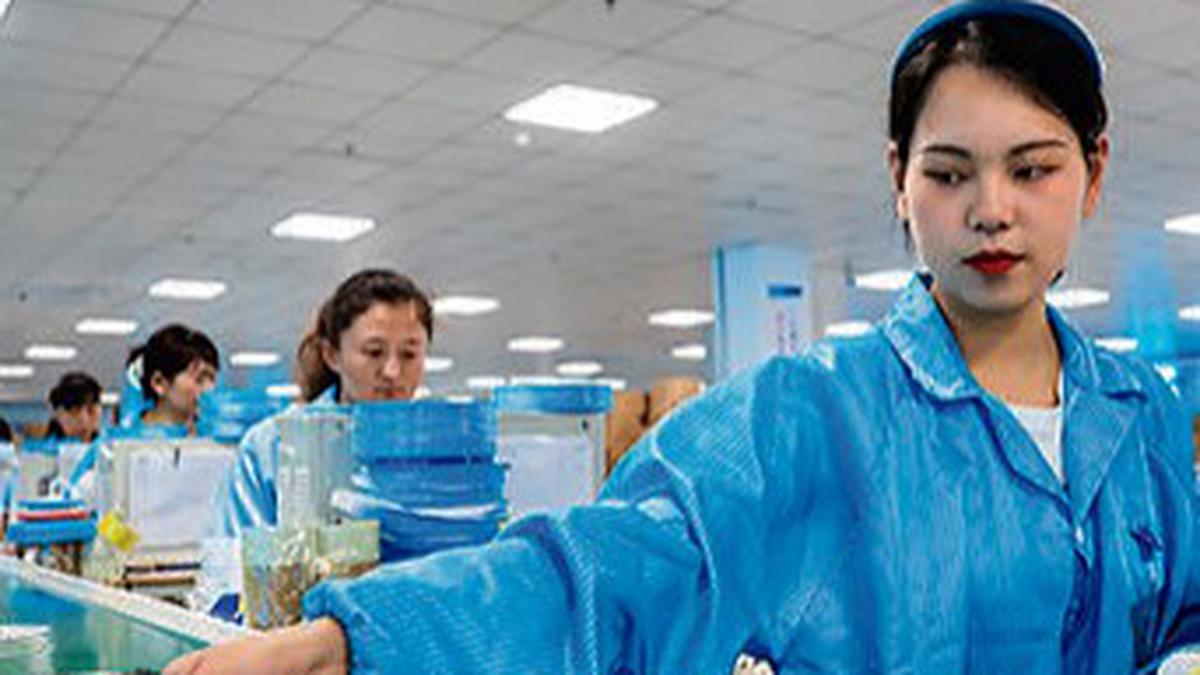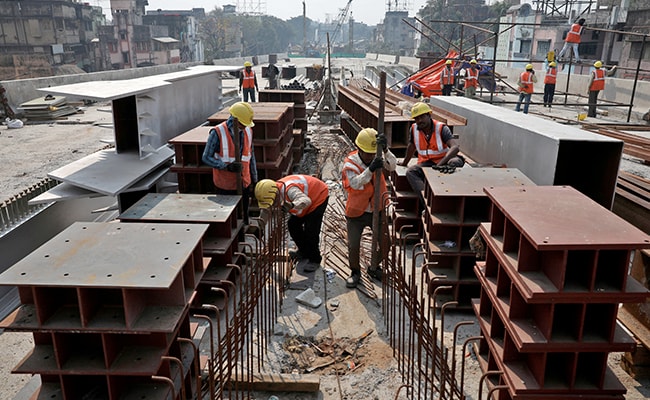Farmers ride on a cart loaded with grass in a village on the outskirts of Jalandhar, Punjab on January 31, 2023. According the Economic Survey, the performance of the agriculture and allied sector had been buoyant over the past several years due to the measures taken by Centre to augment crop and livestock productivity
| Photo Credit: AFP
The Economic Survey noted that the agriculture sector in the country grew by 3% in 2021-22, lower than an average growth of 4.6% in the last six years. In 2020-21, the growth in this sector was 3.3%. In 2016-17, the growth rate was 6.8%, followed by 6.6% in 2017-18, 2.1% in 2018-19 and 5.5% in 2019-20. The Survey said private investment in agriculture increased to 9.3% in 2020-21. The public investment, however, remained at 4.3%, the same as 2019-20. In 2011-12, the public investment in agriculture was 5.4%.
The survey, tabled in both the Houses of Parliament on Tuesday, said the performance of the agriculture and allied sector had been buoyant over the past several years due to the measures taken by Centre to augment crop and livestock productivity, ensure certainty of returns to the farmers through price support, promote crop diversification, improve market infrastructure through the impetus provided for the setting up of farmer-producer organisations and promotion of investment in infrastructure facilities through the Agriculture Infrastructure Fund. The survey also hailed schemes such as the Pradhan Mantri Kisan Samman Nidhi for helping farmers.
Climatic issues
The survey said the country rapidly emerged as the net exporter of agricultural products. “In 2020-21, exports of agriculture and allied products from India grew by 18% over the previous year. During 2021-22, agricultural exports reached an all-time high of US$ 50.2 billion,” the survey said.
The survey said there was a sustained increase in the foodgrain production in the country, but expressed concern at the climatic issues that impacted agriculture. “As per Fourth Advance Estimates for 2021-22, the production of food grains and oil seeds has been increasing Year-on-Year. Production of pulses have also been notably higher than the average of 23.8 million tonnes in the last five years,” the survey said adding that changing climate had been impacting agriculture adversely.
“The year 2022 witnessed an early heat wave during the wheat-harvesting season, adversely affecting its production. The year experienced a decline in the sown area for paddy cultivation too in the Kharif season due to delayed monsoons and deficient rainfall,” it noted.
The survey concluded that the performance of the agriculture sector remained critical to the growth and employment in the country. “Investment in the sector must be encouraged through an affordable, timely and inclusive approach to credit delivery,” it said. A focus on the horticulture sector and the thrust towards allied activities had diversified farmers’ income making them more resilient to weather shocks, the survey pointed out.
“A greater focus on the development of the food processing sector can reduce wastage/ loss and increase the length of storage, ensuring better prices for the farmers,” it added.






